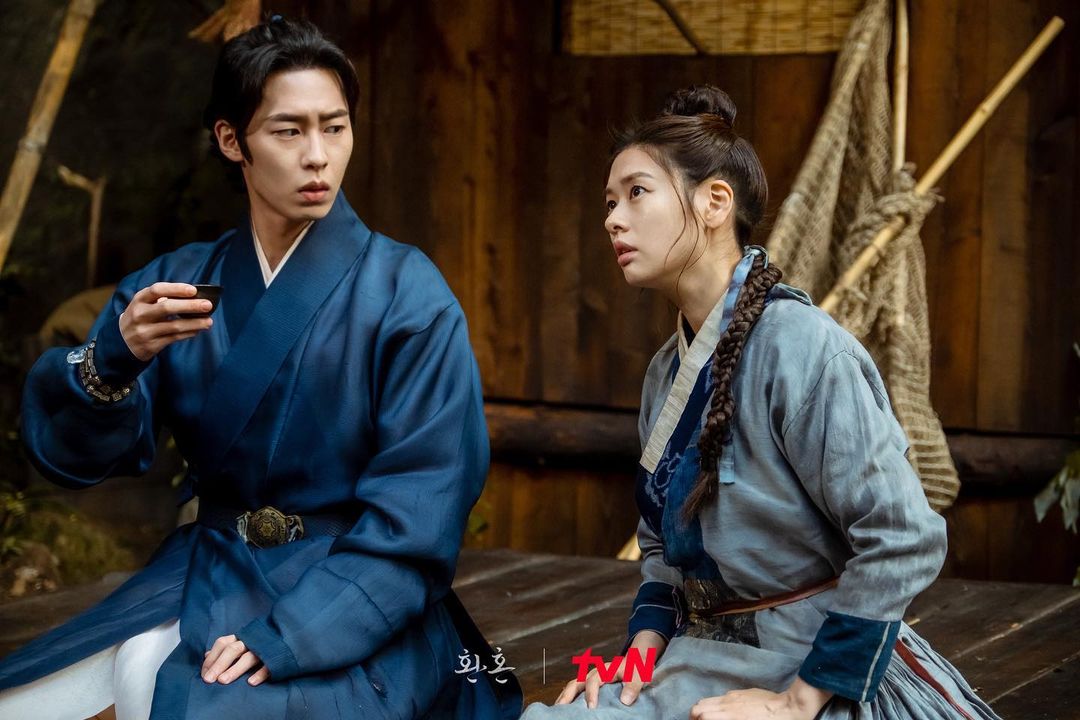Imagine a world where magic isn’t just a tool but a dangerous, double-edged sword. Alchemy of Souls drops us right into this richly woven universe, where the line between light and dark blurs with every spell. From the opening scene, it grips you—not with flashy effects, but with a mystery. Souls can switch bodies here, and that’s where our story begins.
We meet Mu-deok, a seemingly frail servant, but there’s a twist. Inside her is the soul of Naksu, a feared assassin. That’s the hook. The duality in her character sets the tone for the entire series. How do you hide the instincts of a killer in the body of someone weak? It’s a question that echoes throughout, as identity and power collide.
Then there’s Jang Uk, the rebellious mage. He’s everything a typical hero shouldn’t be—flawed, reckless, and a bit lost. But that’s what makes him relatable. He’s forbidden from learning magic, yet desperate to unlock his potential. Enter Mu-deok. Their relationship isn’t just master and student; it’s a dance of trust, secrets, and growing respect. It’s complicated. And it’s fascinating.
The world-building in Alchemy of Souls deserves its own spotlight. The kingdom of Daeho isn’t just a backdrop; it’s a living, breathing character. The rules of magic, the societal hierarchy, the clans—it’s intricate without being overwhelming. Each detail adds depth, pulling you further in.
One of the series’ strengths is its pacing. There’s a rhythm to the storytelling. Moments of intense action are balanced with quiet, emotional beats. Take the early training sequences. They’re not just about Jang Uk learning magic; they’re about Mu-deok rediscovering her own power. Each spell cast carries weight. Each failure feels personal.
The supporting characters aren’t just filler—they’re essential pieces of the puzzle. Take Seo Yul, the calm, stoic mage with a past connection to Naksu. His presence adds layers to the story. He’s not just a rival or a friend; he’s a mirror, reflecting different parts of Jang Uk and Mu-deok. His quiet loyalty speaks volumes.
Then there’s the Crown Prince. At first, he seems like the typical antagonist—arrogant, entitled. But as the story unfolds, we see shades of vulnerability. There’s a complexity to his relationship with Jang Uk. It’s not just rivalry; there’s a mutual respect buried under the tension.
The concept of soul-switching isn’t just a plot device; it’s a metaphor. Who are we beneath the surface? Can someone change their destiny, or are we bound by our past? These questions drive the narrative. Naksu’s struggle in Mu-deok’s body isn’t just physical—it’s an existential battle. She’s trying to reclaim her identity while questioning what that identity even means.
The romance in Alchemy of Souls is another highlight. It’s not forced or rushed. The chemistry between Jang Uk and Mu-deok builds slowly, through shared moments of vulnerability. There’s a scene where they sit by a fire, talking about their dreams. It’s quiet, understated, but powerful. The emotions feel real, earned.
Visually, the series is stunning. The cinematography captures the magic and mystery of Daeho. The fight scenes are beautifully choreographed, blending martial arts with spellcasting. But it’s the smaller moments—the lingering shots, the close-ups—that really stand out. They give us a window into the characters’ souls.
The stakes rise as the series progresses. Secrets are revealed, alliances shift. There’s a sense of impending doom, a shadow hanging over every victory. The main antagonist, the soul-shifter Jin Mu, is a constant threat. He’s not just a villain; he’s a reminder of what happens when power corrupts.
One of the most emotional arcs involves Mu-deok’s internal struggle. She’s haunted by her past as Naksu, but there are moments when we see glimpses of softness, of longing. It’s a reminder that even the strongest warriors have scars. Her journey is about more than revenge—it’s about redemption.
The final episodes are a rollercoaster. Choices are made, sacrifices are inevitable. There’s a sense that nothing will ever be the same. The cliffhanger ending leaves us with more questions than answers, but it feels right. Life is messy, and so is magic.
At its core, Alchemy of Souls is about transformation. Not just the literal kind, with soul-switching, but the deeper, personal kind. Every character is on a journey to become something more, something different. It’s about the cost of ambition, the weight of legacy, and the search for identity.
In the end, Alchemy of Souls isn’t just a fantasy drama—it’s a reflection on what it means to be human. The magic is cool, sure, but it’s the characters and their struggles that stay with you. It’s a story about broken people finding strength in each other, about the alchemy of souls and hearts. And that’s the real magic.
4o
